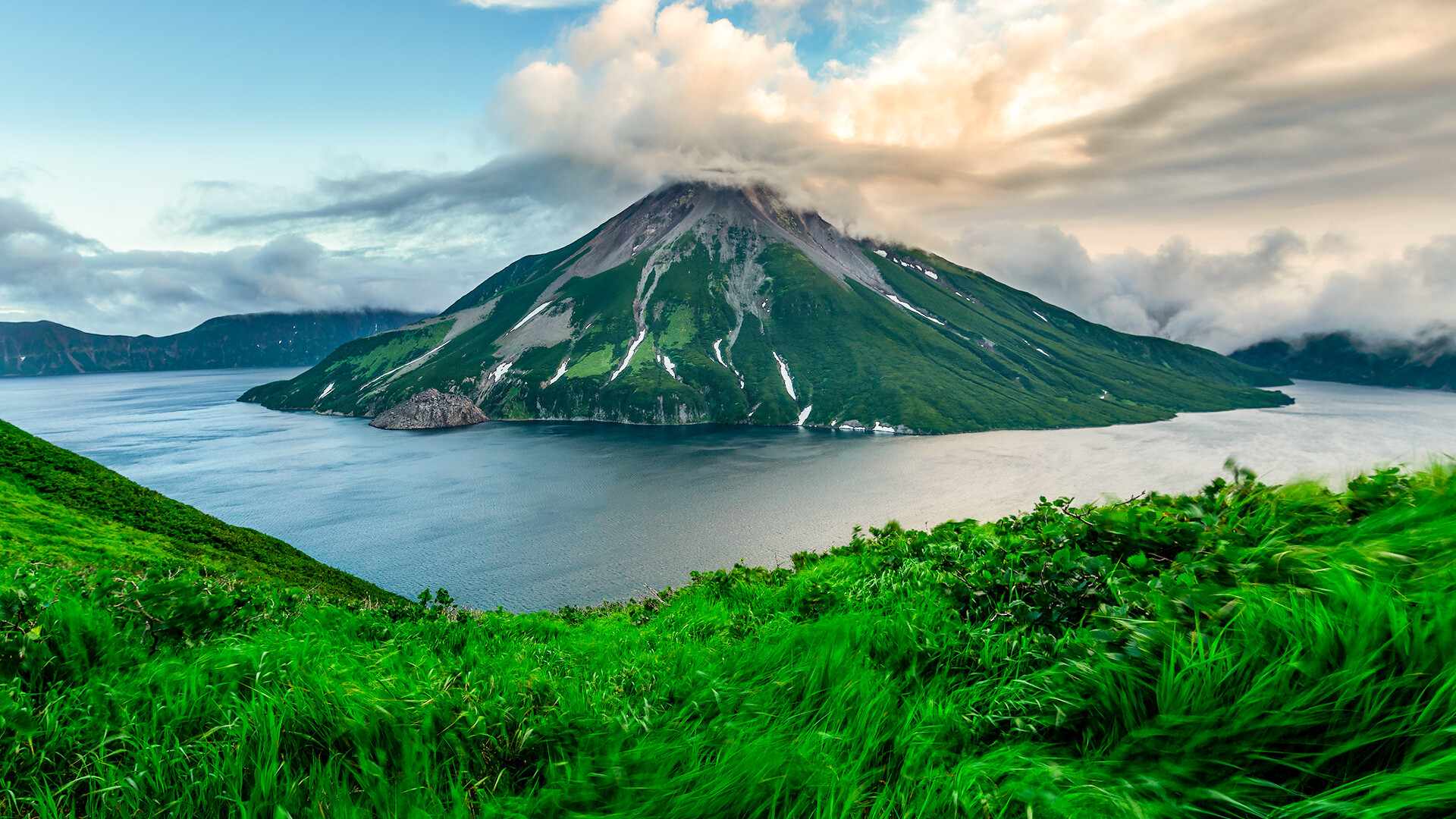
Onekotan Island
Legion Media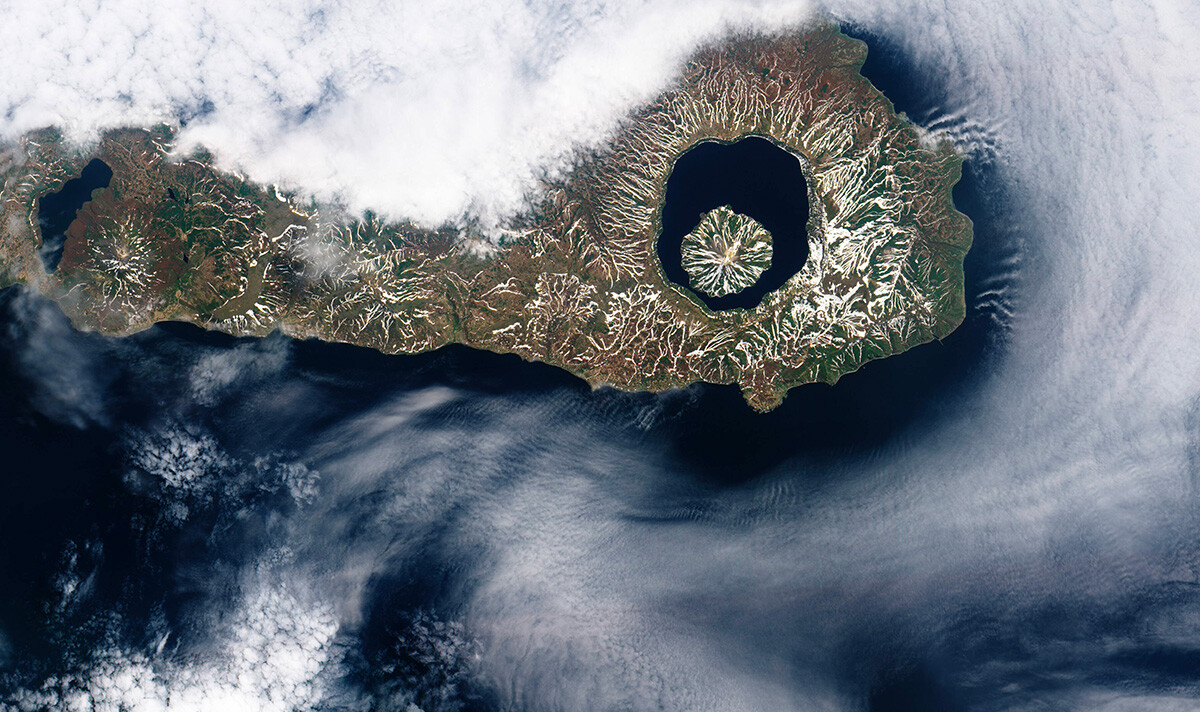
Two-thirds of Onekotan Island in the Kurils is composed of volcanoes. Two of them - Krenitsyn and Nemo - are still active, although they last erupted in the mid-20th century. Another - Tao-Rusyr - is considered to be extinct. Lakes lie at the foot of the volcanoes, which are covered by forest. Lake Koltsevoye around Krenitsyn Peak is one of the deepest in Russia, with a maximum depth of 369 meters, albeit only 15 km in circumference. Owing to the difficult terrain, it is very difficult to reach the volcanoes of Onekotan Island on foot. The island itself has been uninhabited for a long time, but it has remnants of ancient settlements of the Ainu people, who lived here until the end of the 19th century.

Another fascinating island of the Kuril Chain is Iturup, the largest in the archipelago. In its northern part the island boasts a really incredible natural phenomenon - the White Cliffs. Strictly speaking, these are not rocks - the formations are composed of pumice and volcanic glass, which literally crumble in your hands. In ancient times, this part of Iturup was submerged and the cliffs, ranging from 40 to 120 meters in height, appeared out of the water following a volcanic eruption on the island and an earthquake.
More photos here!
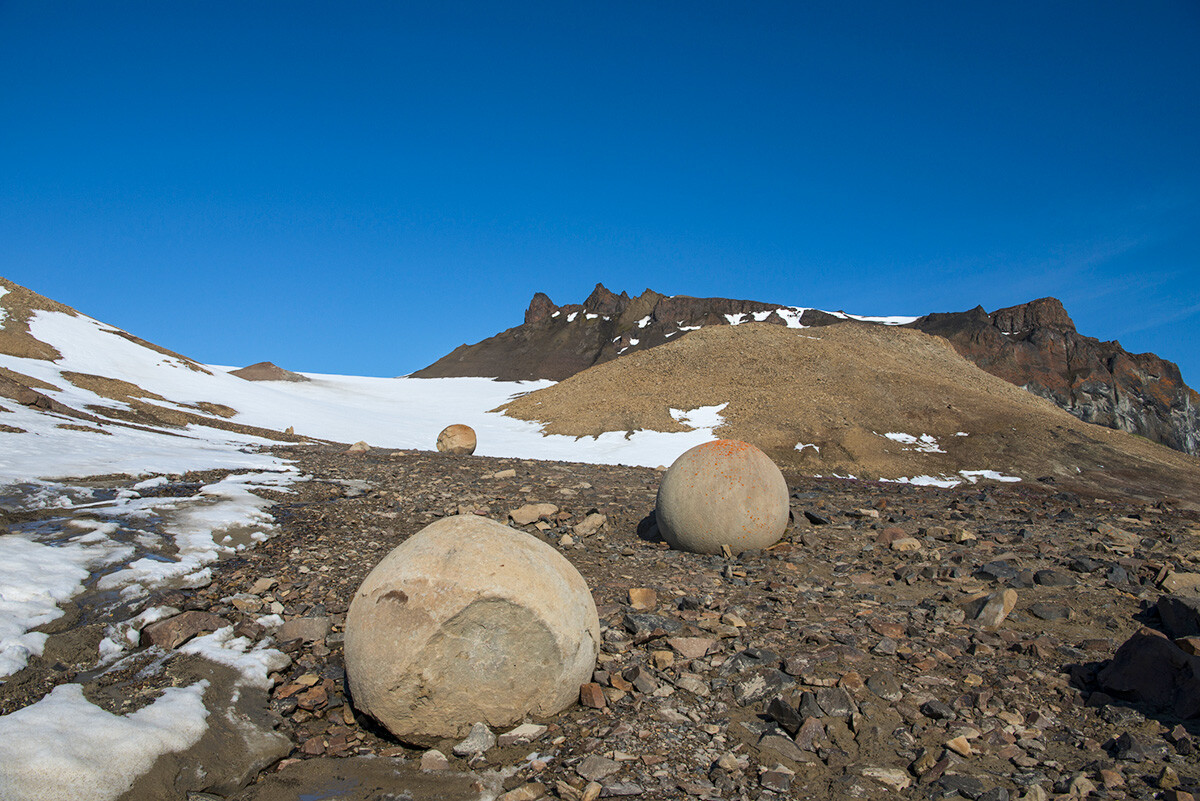
This is one of the most remote places on the planet, which people get to extremely rarely. Champ Island is part of the Franz Josef Land archipelago in the Arctic Ocean. There are practically no vegetation or animals, but, instead, strange stone spheres of various sizes - from several millimeters to several meters - are scattered throughout the island. Who or what made them and when remains a mystery.
More about the island here.
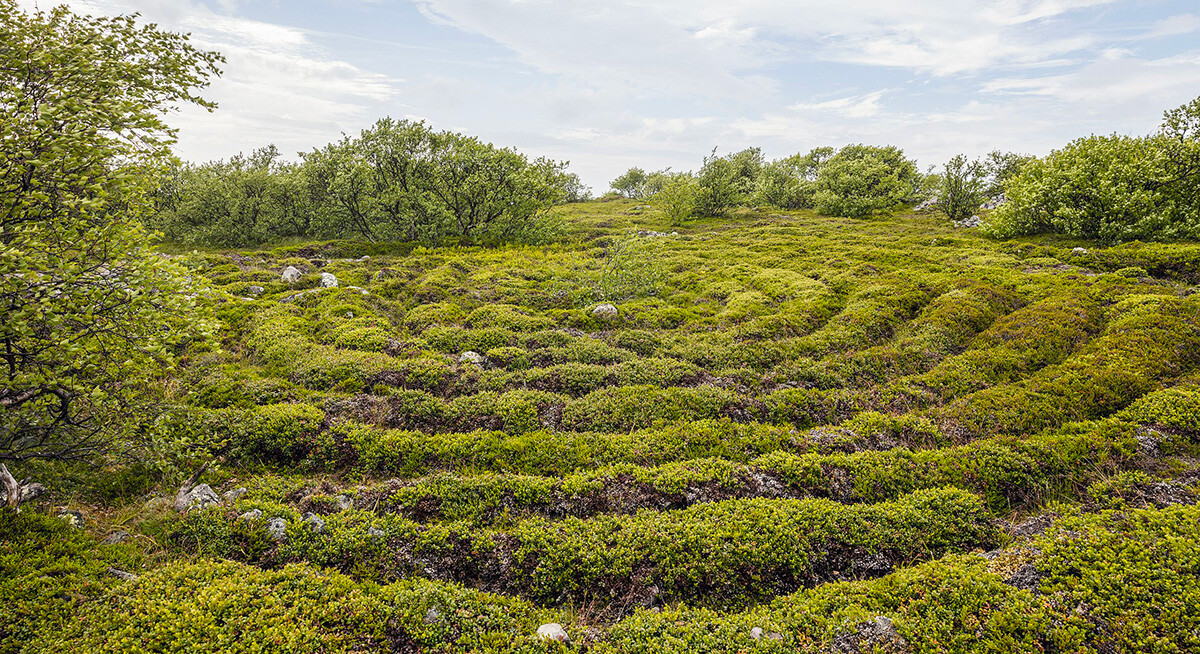
Bolshoi Zayatsky Island is one of the main attractions of the Solovetsky Archipelago in the White Sea. It has 14 stone labyrinths laid out by the ancient inhabitants of these places. The most detailed scientific description of the labyrinths to date was made by ethnographer Nikolai Vinogradov in 1927, but he didn’t come to a final conclusion about their purpose. They may have had a ritual meaning - or a purely practical one to do with catching fish.
More on the labyrinths of the Russian North here.
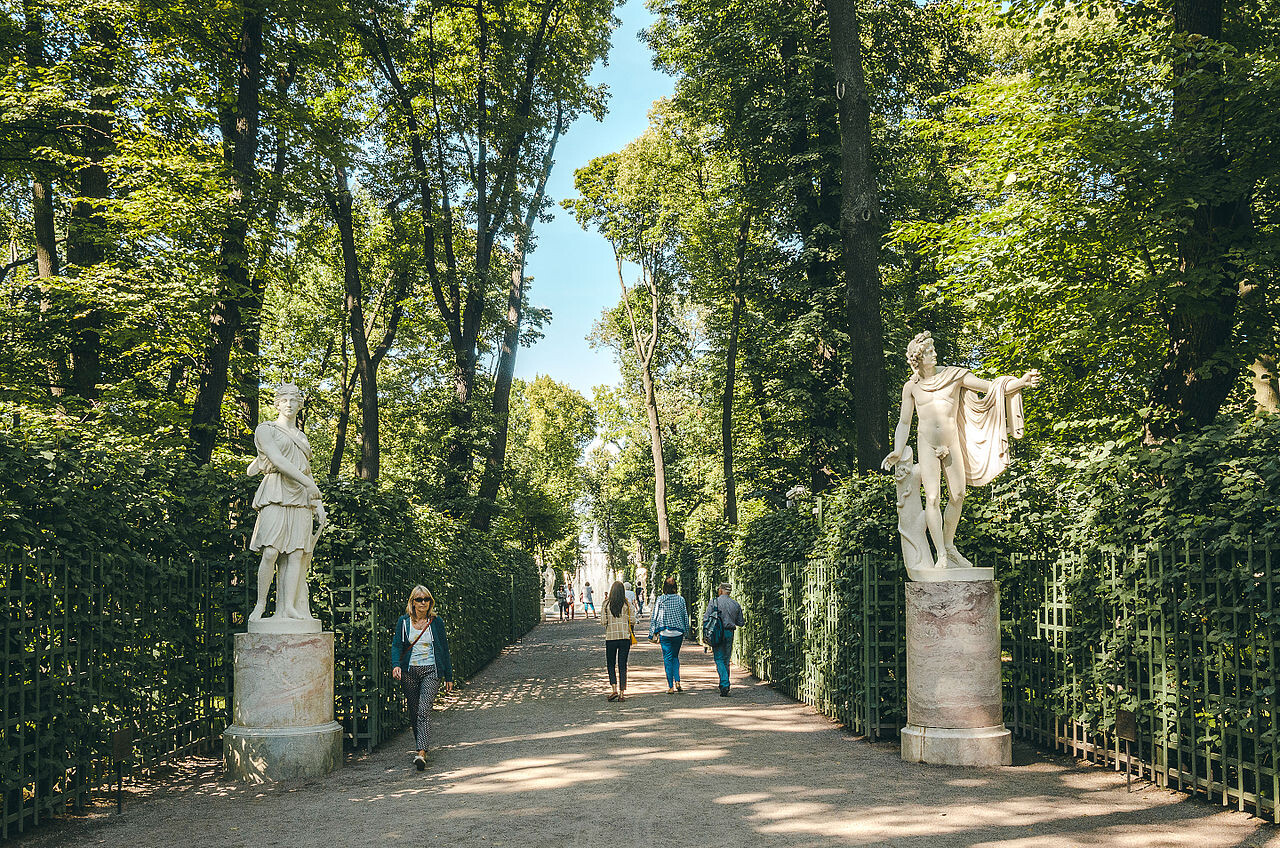
Did you know that St. Petersburg stands on 33 islands linked by bridges and roads? And one of the city’s most picturesque parks - Letniy Sad (Summer Garden) - is also an island of the same name. It was also St. Petersburg’s first regularly laid-out park, created in 1704 on the orders of Peter the Great. He invited the best architects of the time to design it. Splendid fountains and elegant classical sculptures were installed. In addition, the garden island is also officially part of the State Russian Museum.
Read more here.
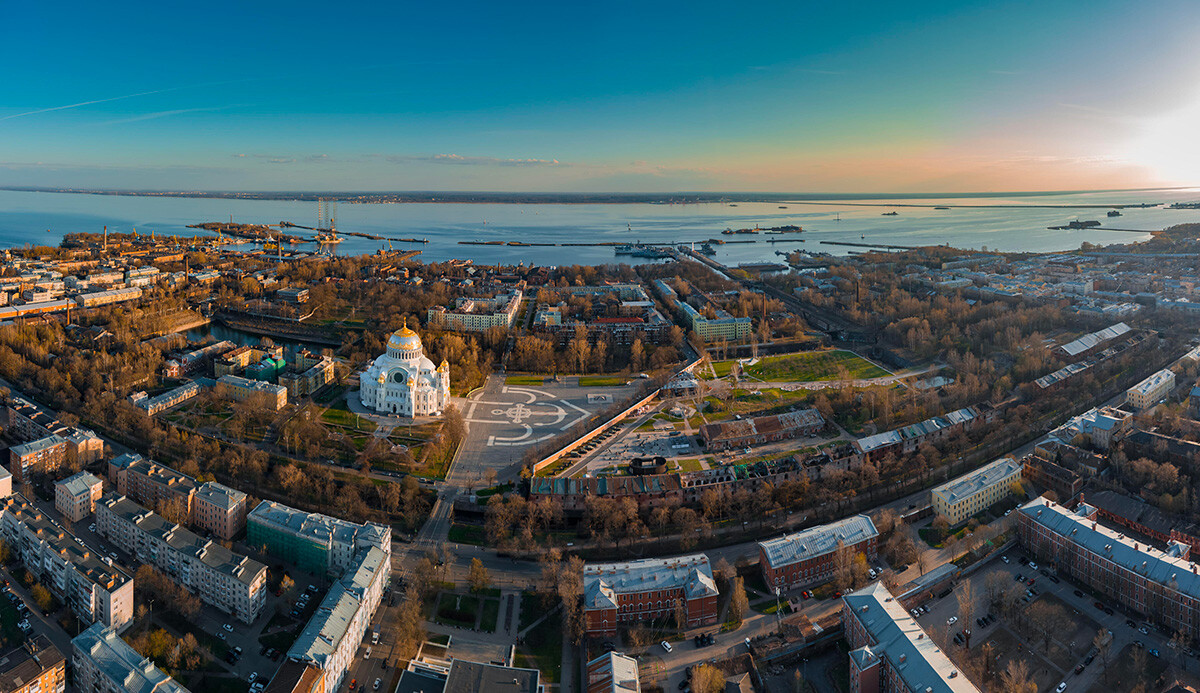
Another remarkable St. Petersburg island is Kotlin, where the fortress town of Kronstadt stands. Amazing hydro-engineering installations of past centuries can be found in the town: A tide gauge for measuring and recording sea level, gigantic docks and a system of defensive forts and lighthouses. The Kronstadt fairway is even listed as a UNESCO world cultural heritage site.
More on the secrets of Kronstadt here.
People left Kolyuchin Island in the Chukchi Sea for good 30 years ago. Today, on this chilly island, there is only an abandoned Soviet weather station, in which polar bears have taken up residence. They go around viewing the wooden buildings with great interest, look out of the windows and play where previously people lived and worked.
More about this island here.
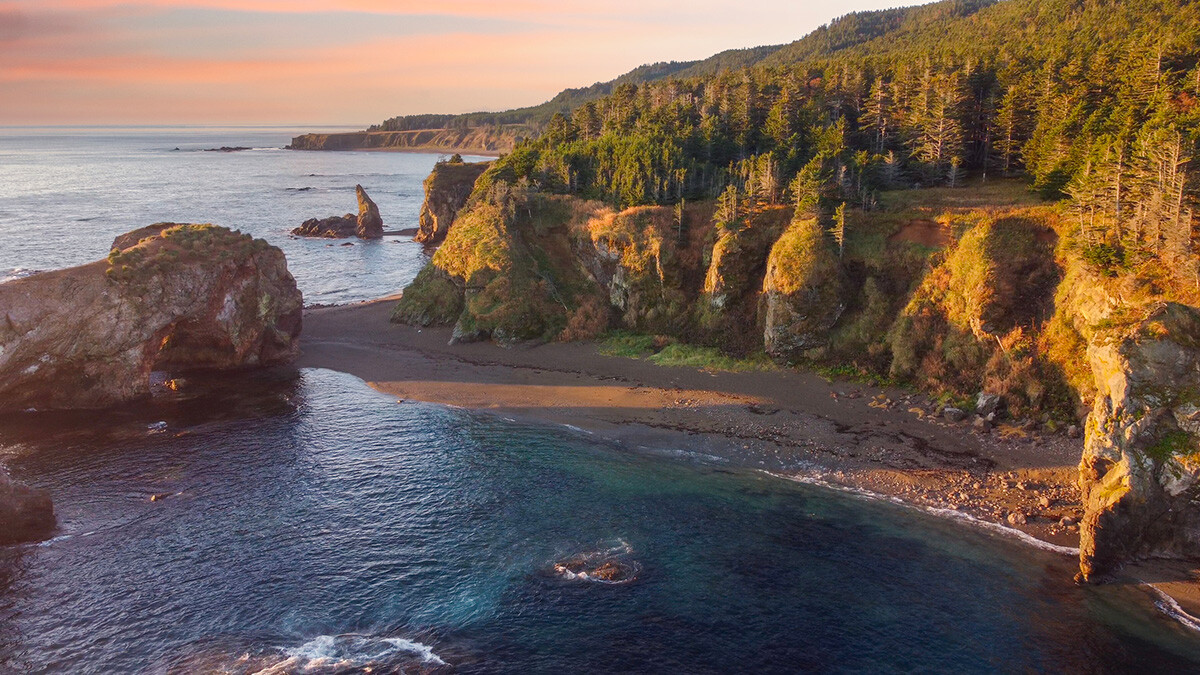
Russia’s biggest island, Sakhalin, has stunning scenery and flora. Although more than a thousand species of the most diverse plants are encountered on the island, the greatest surprise is probably the ordinary burdocks and miscellaneous grass. The point is that only on Sakhalin do they grow to a height of 2-3 meters! “If you’re caught in the rain in the mountains - just pick some burdock,” the locals say jokingly (or not).
What’s the explanation? More in our article.
The Asafovy Islands are a popular leisure destination on the River Volga in Ivanovo Region. There are only sand dunes and pine forests here now, but it was not always so. Before the Gorky Reservoir was built in the 1950s, there was a monastery, an old timber mill and several residential houses. All this ended up at the bottom of the reservoir and what remains sticking out as islands is the tops of the Asafovy Hills.
More on submerged towns here.
Not far from the town of Kaspiysk in the Caspian Sea is an island production facility of the Dagdizel engineering plant built in the 1930s for carrying out tests. The interior of the structure has an elevator, accommodation facilities and other essential infrastructure. By the mid-1960s, however, the workers had already abandoned the man-made island. The reasons for the closure were not officially reported.
Read more here.
Russia also has a multitude of fascinating island monasteries. Here are the most interesting ones>>>
If using any of Russia Beyond's content, partly or in full, always provide an active hyperlink to the original material.
Subscribe
to our newsletter!
Get the week's best stories straight to your inbox